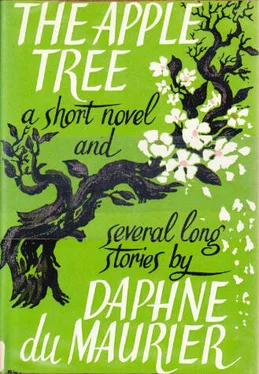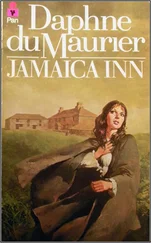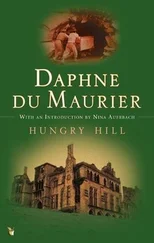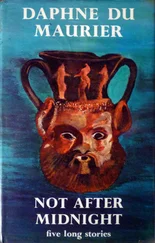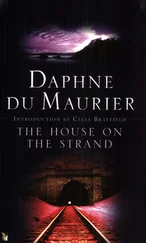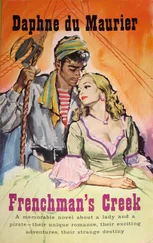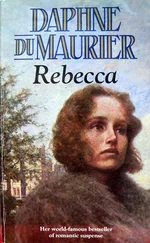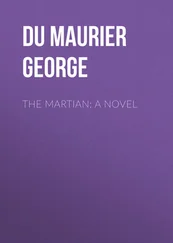Daphne du Maurier - The Apple Tree - a short novel & several long stories
Здесь есть возможность читать онлайн «Daphne du Maurier - The Apple Tree - a short novel & several long stories» весь текст электронной книги совершенно бесплатно (целиком полную версию без сокращений). В некоторых случаях можно слушать аудио, скачать через торрент в формате fb2 и присутствует краткое содержание. Жанр: Современная проза, Триллер, Социально-психологическая фантастика, на английском языке. Описание произведения, (предисловие) а так же отзывы посетителей доступны на портале библиотеки ЛибКат.
- Название:The Apple Tree: a short novel & several long stories
- Автор:
- Жанр:
- Год:неизвестен
- ISBN:нет данных
- Рейтинг книги:5 / 5. Голосов: 1
-
Избранное:Добавить в избранное
- Отзывы:
-
Ваша оценка:
- 100
- 1
- 2
- 3
- 4
- 5
The Apple Tree: a short novel & several long stories: краткое содержание, описание и аннотация
Предлагаем к чтению аннотацию, описание, краткое содержание или предисловие (зависит от того, что написал сам автор книги «The Apple Tree: a short novel & several long stories»). Если вы не нашли необходимую информацию о книге — напишите в комментариях, мы постараемся отыскать её.
The Apple Tree: a short novel & several long stories — читать онлайн бесплатно полную книгу (весь текст) целиком
Ниже представлен текст книги, разбитый по страницам. Система сохранения места последней прочитанной страницы, позволяет с удобством читать онлайн бесплатно книгу «The Apple Tree: a short novel & several long stories», без необходимости каждый раз заново искать на чём Вы остановились. Поставьте закладку, и сможете в любой момент перейти на страницу, на которой закончили чтение.
Интервал:
Закладка:
He turned away from the window and set about re-arranging the room to his taste, spreading his things about. He liked pottering, opening drawers, taking things out and putting them back again. There was a red pencil in one of the side tables that must have slipped down behind a pile of books and been found during the turn-out. He sharpened it, gave it a sleek fine point. He found a new film in another drawer, and kept it out to put in his camera in the morning. There were a number of papers and old photographs in the drawer, heaped in a jumble, and snapshots too, dozens of them. Midge used to look after these things at one time and put them in albums; then during the war she must have lost interest, or had too many other things to do.
All this junk could really be cleared away. It would have made a fine fire the other night, and might have got even the apple logs to burn. There was little sense in keeping any of it. This appalling photo of Midge, for instance, taken heaven knows how many years ago, not long after their marriage, judging from the style of it. Did she really wear her hair that way? That fluffy mop, much too thick and bushy for her face, which was long and narrow even then. The low neck, pointing to a V, and the dangling ear-rings, and the smile, too eager, making her mouth seem larger than it was. In the left-hand corner she had written "To my own darling Buzz, from his loving Midge." He had completely forgotten his old nickname. It had been dropped years back, and he seemed to remember he had never cared for it: he had found it ridiculous and embarrassing and had chided her for using it in front of people.
He tore the photograph in half and threw it on the fire. He watched it curl up upon itself and burn, and the last to go was that vivid smile. My own darling Buzz… Suddenly he remembered the evening dress in the photograph. It was green, not her colour ever, turning her sallow; and she had bought it for some special occasion, some big dinner party with friends who were celebrating their wedding anniversary. The idea of the dinner had been to invite all those friends and neighbourss who had been married roughly around the same time, which was the reason Midge and he had gone.
There was a lot of champagne, and one or two speeches, and much conviviality, laughter, and joking — some of the joking rather broad — and he remembered that when the evening was over, and they were climbing into the car to drive away, his host, with a gust of laughter, said, "Try paying your addresses in a top hat, old boy, they say it never fails!" He had been aware of Midge beside him, in that green evening frock, sitting very straight and still, and on her face that same smile which she had worn in the photograph just destroyed, eager yet uncertain, doubtful of the meaning of the words that her host, slightly intoxicated, had let fall upon the evening air, yet wishing to seem advanced, anxious to please, and more than either of these things desperately anxious to attract.
When he had put the car away in the garage and gone into the house he had found her waiting there, in the living-room, for no reason at all. Her coat was thrown off to show the evening dress, and the smile, rather uncertain, was on her face.
He yawned, and settling himself down in a chair picked up a book. She waited a little while, then slowly took up her coat and went upstairs. It must have been shortly afterwards that she had that photograph taken. "My own darling Buzz, from his loving Midge." He threw a great handful of dry sticks on to the fire. They crackled and split and turned the photograph to ashes. No damp green logs tonight…
It was fine and warm the following day. The sun shone, and the birds sang. He had a sudden impulse to go to London. It was a day for sauntering along Bond Street, watching the passing crowds. A day for calling in at his tailors, for having a hair-cut, for eating a dozen oysters at his favourite bar. The chill had left him. The pleasant hours stretched before him. He might even look in at a matinee.
The day passed without incident, peaceful, untiring, just as he had planned, making a change from day-by-day country routine. He drove home about seven o'clock, looking forward to his drink and to his dinner. It was so warm he did not need his overcoat, not even now, with the sun gone down. He waved a hand to the farmer, who happened to be passing the gate as he turned into the drive.
"Lovely day," he shouted.
The man nodded, smiled. "Can do with plenty of these from now on," he shouted back. Decent fellow. They had always been very matey since those war days, when he had driven the tractor.
He put away the car and had a drink, and while waiting for supper took a stroll around the garden. What a difference those hours of sunshine had made to everything. Several daffodils were out, narcissi too, and the green hedgerows fresh and sprouting. As for the apple trees, the buds had burst, and they were all of them in flower. He went to his little favourite and touched the blossom. It felt soft to his hand and he gently shook a bough. It was firm, well-set, and would not fall. The scent was scarcely perceptible as yet, but in a day or two, with a little more sun, perhaps a shower or two, it would come from the open flower and softly fill the air, never pungent, never strong, a modest scent. A scent which you would have to find for yourself, as the bees did. Once found it stayed with you, it lingered always, alluring, comforting, and sweet. He patted the little tree, and went down the steps into the house.
Next morning, at breakfast, there came a knock on the dining-room door, and the daily woman said that Willis was outside and wanted to have a word with him. He asked Willis to step in. The gardener looked aggrieved. Was it trouble, then?
"I'm sorry to bother you, sir," he said, "but I had a few words with Mr. Jackson this morning. He's been complaining."
Jackson was the farmer, who owned the neighbouring fields.
"What's he complaining about?"
"Says I've been throwing wood over the fence into his field, and the young foal out there, with the mare, tripped over it and went lame. I've never thrown wood over the fence in my life, sir. Quite nasty he was, sir. Spoke of the value of the foal, and it might spoil his chances to sell it."
"I hope you told him, then, it wasn't true."
"I did, sir. But the point is someone has been throwing wood over the fence. He showed me the very spot. just behind the garage. I went with Mr. Jackson, and there they were. Logs had been tipped there, sir. I thought it best to come to you about it before I spoke in the kitchen, otherwise you know how it is, there would be unpleasantness."
He felt the gardener's eye upon him. No way out, of course.
And it was Willis's fault in the first place.
"No need to say anything in the kitchen, Willis," he said. "I threw the logs there myself. You brought them into the house, without my asking you to do so, with the result that they put out my fire, filled the room with smoke, and ruined an evening. I chucked them over the fence in a devil of a temper, and if they have damaged Jackson's foal you can apologise for me, and tell him I'll pay him compensation. All I ask is that you don't bring any more logs like those into the house again."
"No, sir. I understood they had not been a success. I didn't think, though, that you would go so far as to throw them out."
"Well, I did. And there's an end to it."
"Yes, sir." He made as if to go, but before he left the dining-room he paused and said, "I can't understand about the logs not burning, all the same. I took a small piece back to the wife, and it burnt lovely in our kitchen, bright as anything."
"'It did not burn here."
"Anyway, the old tree is making up for one spoilt branch, sir. Have you seen her this morning?"
Читать дальшеИнтервал:
Закладка:
Похожие книги на «The Apple Tree: a short novel & several long stories»
Представляем Вашему вниманию похожие книги на «The Apple Tree: a short novel & several long stories» списком для выбора. Мы отобрали схожую по названию и смыслу литературу в надежде предоставить читателям больше вариантов отыскать новые, интересные, ещё непрочитанные произведения.
Обсуждение, отзывы о книге «The Apple Tree: a short novel & several long stories» и просто собственные мнения читателей. Оставьте ваши комментарии, напишите, что Вы думаете о произведении, его смысле или главных героях. Укажите что конкретно понравилось, а что нет, и почему Вы так считаете.
